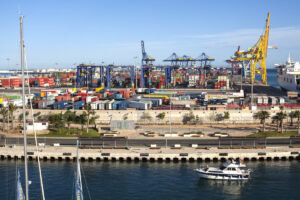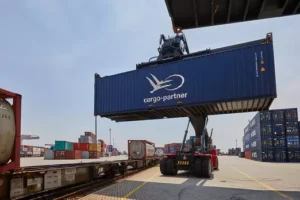According to Sea-Intelligence’s issue 623 Sunday Spotlight, the pricing has changed for Liquid Natural Gas (LNG) as a naval fuel.
The IMO2020 criteria, according to Sea-Intelligence, required a decrease in sulphur emissions, with the option of utilising Very Low Sulphur Fuel Oil (VLSFO), LNG, or scrubbers.
All appeared to be reasonable alternatives, but it was unclear which was the greatest option.
As the market evolved, Sea-Intelligence saw an increase in VLSFO price, indicating a strong case for scrubbers, as seen in Figure 1.

READ: Hapag-Lloyd implements LNG storage on 23,600 TEU vessel
After that, the premium dropped rapidly, and scrubbers seemed to be the least viable option. The premium then escalated once more, making the case for scrubbers.
Alan Murphy, CEO of Sea-Intelligence, highlighted: “With the Russian invasion of Ukraine, LNG prices spiked to extreme levels. Now, LNG prices are getting to a point, where it is cheaper than VLSFO.
“LNG should be compared to (VLSFO) prices, as LNG is a fuel which, like VLSFO, adheres to the IMO2020 low-sulphur regulation, without the vessel having to install a scrubber.
“In the absence of publicly available global LNG prices, we have used Rotterdam prices as a proxy. The question is, of course, whether Rotterdam prices are representative of the global prices.”
Thus, Sea-intelligence discovered a solid match by comparing IFO380 pricing in Rotterdam to the global average for IFO380, despite the fact that the fuel price in Rotterdam is normally lower than the global average.
READ: Port of Rotterdam witnesses decline in container throughput
In the first half of July 2023, this price discount in Rotterdam was on average 34 USD/tonne, reported Sea-Intelligence.
The extreme LNG price spike in 2021-2022 ‘drowns out’ the more recent developments.
Figure 1 shows the price difference between LNG and VLSFO in 2023.
Even after accounting for the -34 USD/tonne reduction, Sea-Intelligence feels it is clear that using LNG is more cost effective than using VLSFO fuel.
This month, Sea-Intelligence revealed that worldwide schedule dependability in May 2023 improved to 66.8 percent.









